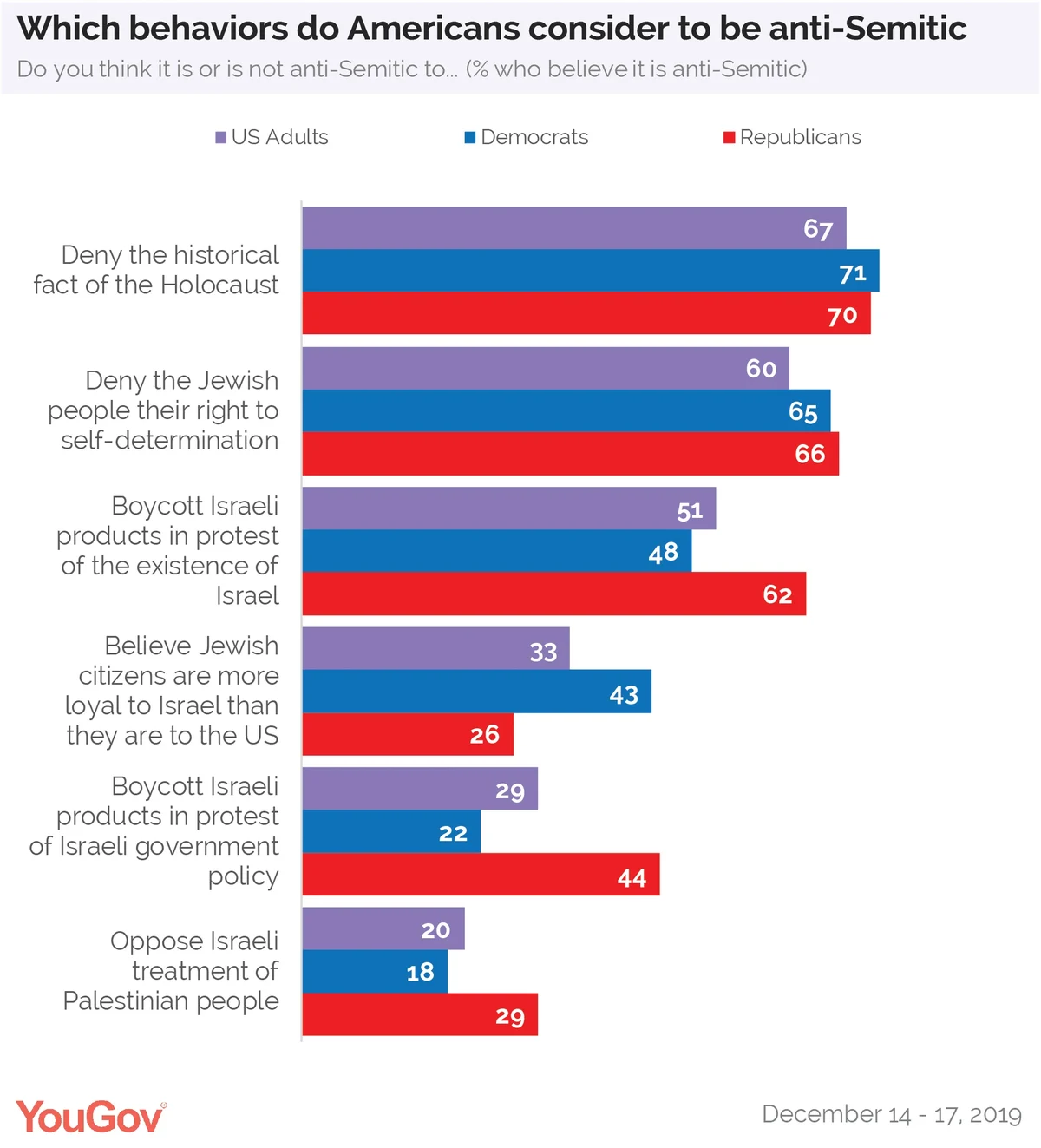Half the country regards anti-Semitism as a serious national problem.
That said, Americans don’t necessarily think President Donald Trump’s executive order including anti-Semitism in the Civil Rights Act prohibiting discrimination on the basis of “race, color, and national origin” is the proper response. According to most Americans in the Economist/YouGov Poll, Judaism is neither a race nor a nationality. It is a religion.
Still, nearly one in four Americans (24%) would describe Judaism as a race. Fewer (18%) call it a nationality. Republicans (30%) are somewhat more likely than Democrats (23%) to say Judaism is a race; whites (25%) more likely than blacks (18%), and conservatives (32%) more likely than liberals (23%) to say this. Similar patterns of responses emerge when it comes to defining Judaism as a nationality.
Most of the president’s actions and statements are assessed differently by Republicans and Democrats, and when it comes to this executive order, the overall evaluation is negative. Only 12 percent of respondents have heard “a lot” about it, while a majority (58%) say they had heard nothing at all. Overall, 29 percent approve of the executive order, 37 percent disapprove.
Among those who have heard the most about the executive order, 35 percent approve, while half (50%) do not. The executive order is aimed specifically at universities that receive federal funding. The goal is to stop anti-Semitism on campus. But what does anti-Semitism mean?
Some supporters of the executive order say it will ensure fair treatment of Jews on campus. But many critics see it being aimed at anti-Israel demonstrations and boycotts. Most Americans include the former, actions against Jews themselves, in their definition of what anti-Semitism means, and don’t include statements and protests criticizing Israel.
Overwhelmingly, the public sees anti-Semitism when people deny the fact of the Holocaust (67% say this is anti-Semitism) or deny Jews the right of self-determination (60%). But Americans don’t characterize opposition to Israel, specifically its treatment of the Palestinians, or boycotting Israeli products that way. On the first two items, there is little partisan difference. But Republicans are significantly more likely than Democrats to characterize criticism of Israel as anti-Semitism.

Democrats are more likely than Republicans to label charging Jews with being more loyal to Israel than to the US as anti-Semitism (43%). In fact, Republicans tend not to see it as such—just 26 percent say it is. There is a clear ideological divide. Liberals describe such behavior as anti-Semitism by more than two to one (54% to 20%). Moderates and conservatives disagree (39% to 26%).
There are not enough Jewish Americans represented in the poll to reliably measure their opinions on the specific subject of anti-Semitism. But it is worth noting that throughout all weeks of polling on President Trump, Jews are significantly less positive about the President than Americans overall.
On average, nearly two-thirds of Jewish respondents from the first post-Inauguration weekly poll to the latest one express disapproval of the President’s performance on the job. 31 percent disapprove. Four in ten (40%) US adults approve of the President; 51 percent do not. Half of all Jews interviewed since January 2017 call themselves Democrats. Overall, 31 percent do. One in five Jews identifies as Republicans, a slightly smaller percentage than the 25 percent overall.
About three-quarters (78%) of Jewish Republicans have approved of the President’s performance in polls conducted since he took office, slightly lower than the 84 percent approval rating from all Republicans.
Related: Free trade or tariffs? Many say they want both but are suspicious about trading partners
See the toplines and table results from this Economist/YouGov poll
Image: Getty












